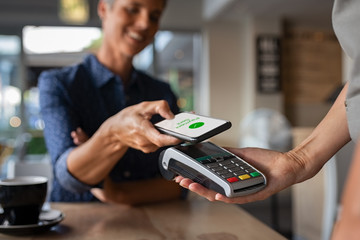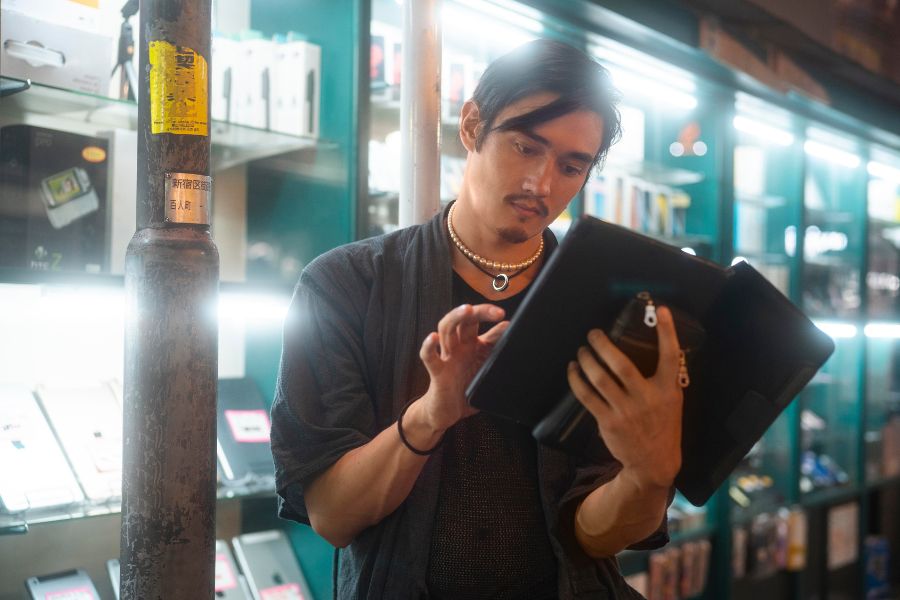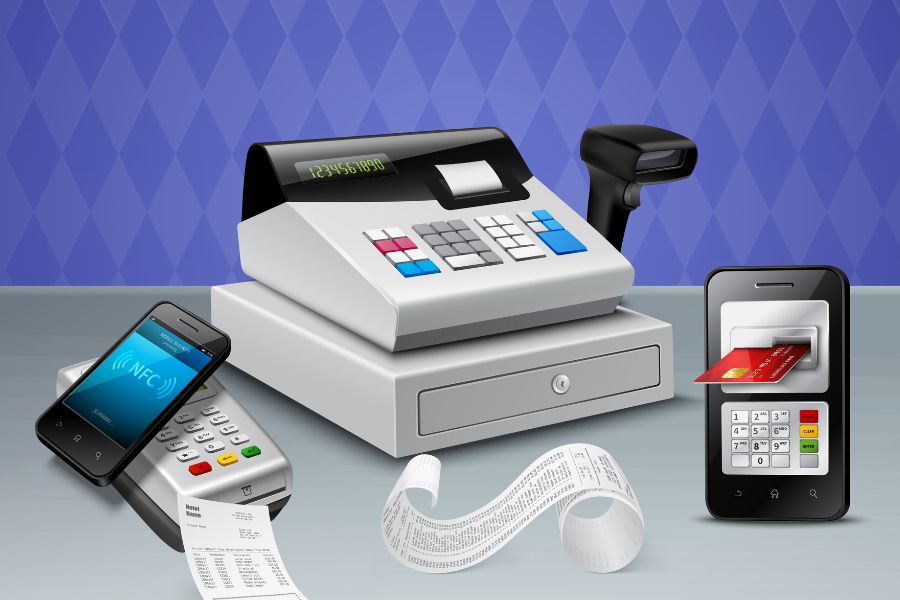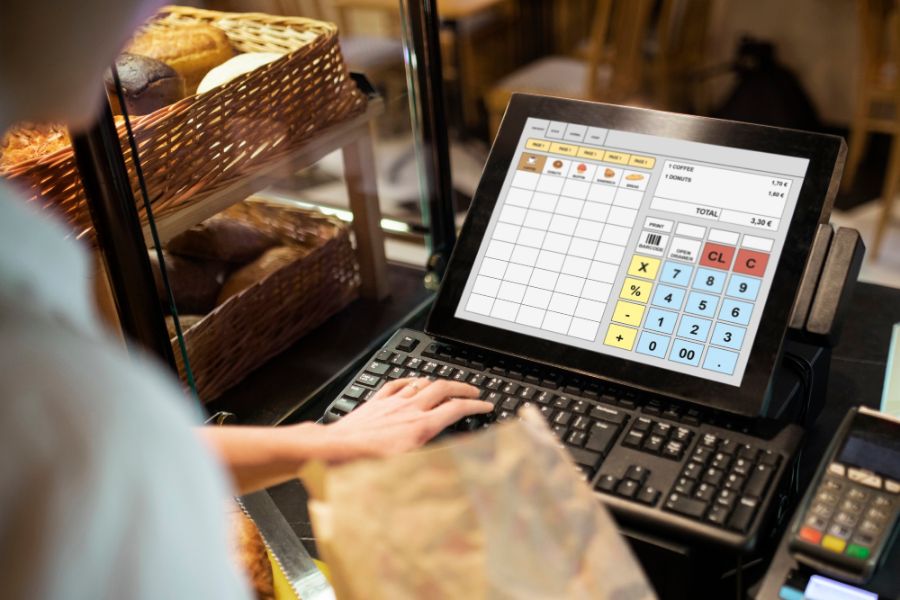The mobile payment market in Indonesia is booming. In 2022, the value of mobile payments in Indonesia was estimated to be $100 billion, and it is expected to reach $200 billion by 2025. This growth is driven by several factors, including the increasing popularity of smartphones, the growing middle class, and the government’s efforts to promote a cashless society. This article will explore the thriving world of mobile POS in Indonesia. It will discuss the current state of the market, customer behavior, and challenges and provide valuable insights for merchants looking to optimize their payment strategies. It will also introduce the ConnectPOS Solution, an innovative mobile POS solution tailored to the Indonesian market’s unique requirements. Read on to learn more about the opportunities and challenges ahead and how you can stay ahead in this dynamic landscape.
Market Overview: Mobile POS
With the surge in digital payments and the government’s unwavering commitment to creating a cashless society, merchants in Indonesia must keep a close eye on it. As the fourth most populous country globally, the country presents a unique terrain, offering challenges and prospects that captivate players in the payments industry within the region.
Unlocking the Cash-Driven Potential
Indonesia’s 274 million-strong population still predominantly relies on cash for daily transactions. Paper money remains the primary mode of payment, followed by credit cards, bank transfers, and digital wallets. Astonishingly, 66% of the populace remains unbanked, while 77% continue to use cash for low-value Point-of-Sale (POS) purchases. (Source: Statista)
The Accelerated Digital Transformation
Indonesia is undergoing one of the world’s fastest digital transformations. The government’s drive towards digital payments to reduce reliance on cash and the exponential growth of smartphone and internet usage has spurred remarkable adoption. The Indonesian government has targeted making Indonesia a cashless society by 2025. This is creating a demand for digital payment solutions from businesses and consumers.
The transformative impact of the pandemic is undeniable, reflected in the addition of 70 million online consumers in Southeast Asia, with Indonesia leading the charge.
As e-commerce grows in popularity in the Indonesian market, it is governed by Law No. 7/2014 on Trade, Government Regulation No. 71/2019 on e-commerce Transactions and Electronic System and Transactions Management, Government Regulation No. 80/2019 on e-commerce Transactions, and Minister of Trade Regulation No. 50/2020 on Business Licensing, Advertising, Advocating, and Supervision of Business in Electronic Commerce. According to Ministry of Trade Law No. 50/2020, foreign e-commerce platforms (PMPSE) that have completed over 1,000 transactions and deliveries in a year must establish a Representative Office in Indonesia.
➜ Read more: 5 Best POS Systems In Indonesia
Driving Factors Towards Cashless Society
Three crucial trends primarily drive the digital transformation in Indonesia. First, smartphone ownership has skyrocketed from 117 million in 2017 to 199 million in 2021, encompassing approximately 72% of the nation’s entire population. (Source: Statista)
Second, the burgeoning FinTech sector owes its success to Indonesia’s central bank, which spearheaded the establishment of the Indonesia Payment System Blueprint 2025. This visionary blueprint has birthed an instant payment infrastructure, fostering an environment for FinTech companies to innovate and flourish. As of late 2021, Indonesia is home to 324 fintech companies, securing a commendable 17th rank in the global unicorn index.
Source: Indonesia FinTech report from BCG, March 2023
Third, the growing popularity of digital payments has created a complex in-store payment environment for merchants. They now need to be able to accept a variety of payment methods, including cash, cards, mobile wallets, and QR codes. This can challenge small businesses, especially those who need to be better versed in digital payments.
TIP: One-stop solutions like ConnectPOS can help merchants meet Indonesia’s rising payment complexity challenges. ConnectPOS is a cloud-based POS system that allows merchants to accept various payment methods, including cash, cards, mobile wallets, and QR codes. It is also a simple and easy-to-use system that businesses of all sizes can use.
Customer Behavior: Impact on Mobile POS Payment Strategies in Indonesia
The mobile payment landscape in Indonesia is rapidly evolving, driven by the growing adoption of mobile devices and the increasing preference for convenient and secure payment options among consumers. As a result, merchants are under pressure to adopt mobile POS solutions to stay competitive and meet the evolving needs of their customers.
Demographic Influence on Mobile Payment Adoption
According to a survey by Statista, the number of mobile payment users in Indonesia is projected to reach 62.2 million by 2023. This represents a substantial increase from 22.4 million users in 2018, indicating a growing acceptance of mobile payment solutions among Indonesian consumers.
Demographic Influence on Mobile Payment Adoption
The younger demographic plays a significant role in driving the growth of mobile payments in Indonesia. A study by eMarketer reveals that 84% of Gen Z and 71% of Millennial consumers in Indonesia prefer using mobile payment apps. This highlights the importance for merchants to cater to the preferences of these tech-savvy consumers.
Preferred Payment Methods for Indonesian Consumers
A study by Ipsos in 2022 reveals that 57% of Indonesian consumers prefer using digital wallets to make payments, making it the most popular payment method in the country. The survey also highlights the convenience factor as the primary reason driving the adoption of mobile payments.
Digital wallets are mobile applications that allow users to store their payment information, such as credit card and debit card numbers, and make payments with a few taps on their phones. They are a convenient and secure payment option for consumers, as they do not require carrying cash or credit cards.
“Digital wallets are the most popular payment method for in-store purchases, followed by credit cards and debit cards.”
According to the Jakarta Post
Challenges Faced by Merchants in the Mobile POS Payment Landscape in Indonesia
Despite the growing adoption of mobile payments, merchants in Indonesia need help in implementing mobile POS solutions. These challenges include
Connectivity and network reliability
Challenge: Ensuring a stable and reliable internet connection is essential for mobile POS systems to function correctly. However, internet infrastructure in Indonesia could be more evenly developed, and some areas may need connectivity issues. According to a report by the World Bank, only 62% of Indonesians have access to the internet. Additionally, the quality of internet connectivity can vary depending on the location. This can make it difficult for merchants to accept mobile payments in areas with poor internet connectivity.
➜ Solution: ConnectPOS offers a cloud-based POS solution accessible from anywhere with an internet connection. This means merchants can accept mobile payments even in areas with poor internet connectivity.
User training and adoption
Challenge: Introducing a new mobile POS system may require training for staff members to utilize its features effectively. Ensuring all employees are comfortable with the technology and can handle transactions efficiently is crucial. Inadequate training can lead to errors during checkout, resulting in frustrated customers and potential revenue loss. A study by the Indonesian Employers Association found that only 20% of businesses in Indonesia provide training to their employees on how to use mobile POS systems. This highlights the need for merchants to invest in staff training to use mobile POS systems effectively.
➜ Solution: ConnectPOS offers comprehensive training materials and support to help merchants get up and running quickly. This includes training on how to use the software, as well as how to handle common customer questions. ConnectPOS also provides ongoing support to help merchants troubleshoot any problems.
Security concerns
Challenge: Security remains a top concern for merchants and consumers in mobile payment. Mobile POS systems store sensitive customer data, such as payment card information, making them potential cyberattack targets. Merchants must invest in robust data encryption and implement security measures to protect customer data and build trust. A Payment Card Industry Security Standards Council (PCI SSC) study found that Indonesia had the third-highest data breaches in Southeast Asia in 2021. This highlights the importance for merchants in Indonesia to take security seriously when implementing mobile POS solutions.
➜ Solution: ConnectPOS uses robust security measures to protect customer data. This includes data encryption, fraud detection, and regular security updates. Merchants can be confident that their customer data is safe when using ConnectPOS in Indonesia.
Transaction fees and costs
Challenge: Mobile POS solutions typically involve transaction fees and processing costs, affecting a merchant’s profit margins, especially for small businesses with lower transaction volumes. Merchants must carefully evaluate the pricing models of different mobile POS providers to choose an option that aligns with their business needs. According to a study by the Central Bank of Indonesia, the average transaction fee for mobile POS payments in Indonesia is 2.9%. This can be a significant cost for small businesses with low transaction volumes.
➜ Solution: ConnectPOS offers a variety of pricing plans to fit the needs of businesses of all sizes, with no POS payment transaction processing fee. This means merchants can find an affordable program that does not affect their profit margins.
By understanding the challenges merchants face in Indonesia’s mobile POS payment landscape, merchants can make informed decisions about whether or not to implement mobile POS solutions. Suppose merchants do decide to implement mobile POS solutions. In that case, they can mitigate the risks associated with these solutions by investing in robust security measures, providing staff training, and carefully evaluating the pricing models of different mobile POS providers.
Seizing the Opportunities: ConnectPOS Solution
Amidst this dynamic landscape, businesses have an unprecedented opportunity to thrive by embracing cutting-edge digital payment solutions. One such solution is ConnectPOS, an innovative Point-of-Sale (POS) system designed to empower merchants, streamline operations, and enhance customer experiences. With its seamless integration and data-driven approach, ConnectPOS equips businesses to capitalize on Indonesia’s evolving payments landscape and ride the wave of financial inclusivity. Contact us!



